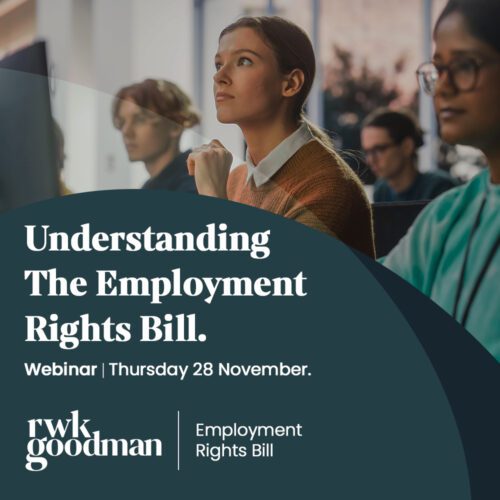Employment Rights Bill 2024: new proposal will (probably) transform the way employers treat dismissal.

The right for employees not to be unfairly dismissed was first introduced by a Labour government in the early 1970s. The qualifying period has varied over time, from two years to six months, then to one year, and back to two years in 2012. The rationale for the two-year period included giving employers confidence to recruit and reducing tribunal claims. So, what is changing?
The government must be thinking that the current law is broken as they are proposing to fix it with the Employment Rights Bill 2024, by introducing several significant changes. Notably, the removal of the current two-year qualifying period to bring a claim for unfair dismissal, which would give an additional 9 million employees the right not to be unfairly dismissed. This was a very prominent manifesto commitment supported by their view that “the current system is arbitrary and leaves workers waiting years for basic rights”. Has the government properly thought through the consequences? Not yet.
Proposed changes to unfair dismissal
Qualifying period: The Bill proposes removing the two-year qualifying period, making unfair dismissal protections available from the first day of work.
Exceptions: There are exceptions for employees who have not yet started work and for dismissals during the initial period of employment (also described as a statutory probationary period).
Initial Period of Employment: This concept is new. During the initial period different rules regarding unfair dismissal may apply. The intention is to allow employers to assess an employee’s suitability for the role where dismissals can be progressed with a lighter-touch process. We will have to wait for regulations to find out how long the initial period will be, but the government has expressed a preference for 9 months. It will also cover employees who are notified of dismissal during the initial period even if their last day of work is up to three months later.
Redundancy: We know that any altered test for unfair dismissal during the initial period will only apply to dismissal for conduct, capability, statutory restriction or some other substantial reason. It excludes redundancy dismissals. That means employers will be at risk of unfair dismissal claims from day one if they dismiss for redundancy and do not follow a fair process. Statutory redundancy pay will still have a two-year qualifying period.
The Bill is still in a consultation phase.
Do not worry if you feel the proposed changes are a little light on detail at the moment. The government have said that substantial consultation will be undertaken. In their Next Steps policy paper, they say consultation will relate to:
• the length of the initial statutory probationary period;
• what a compensation regime for successful claims during probation will be, and whether tribunals will be prevented from awarding full unfair dismissal compensatory damages;
• how to “ensure the probation period has meaningful safeguards to provide stability and security for business and workers”;
• how any lighter-touch dismissal process will interact with the ACAS Code of Practice on Disciplinary and Grievance procedures; and
• ways to signpost and “support employees to ensure they have proper recourse if they are unfairly dismissed but also make clear where bringing claims might be unsuccessful”.
Consultation will take place in 2025. We will see whether a reasonable balance can be struck between employee rights and giving business confidence to recruit. There is plenty of time for reflection since the government have said any changes will not come into force any sooner than Autumn 2026.
We think there is scope for the final position to embody a shortened but rigid process for dismissals during the initial period with steps which employers will quickly learn to deal with. Whether or not it will provide any additional meaningful protection for employees from day one remains to be seen. There will be a need for better documentation with reasons for dismissals being clear. There is plenty of time to educate managers on the changes and for employers to develop recruitment practices which mitigate risks of early dismissals.
Perhaps the effect of the changes will be to increase claims and reduce business confidence in recruiting. We may see more roles being filled by agency workers initially before being offered employment contracts.
Despite the uncertainty around how this proposed legislation will develop, we think it is a safe bet that there will be more litigation. Not only because 9 million employees will have new rights to play with, but also whilst the appellate courts work out what the rules actually mean.

Labour’s once in a generation employment reforms Bill has arrived. But what will it mean for employers and employees? Will it actually make positive change? How will it protect workers rights whilst not obstructing an employer’s drive for productivity.






